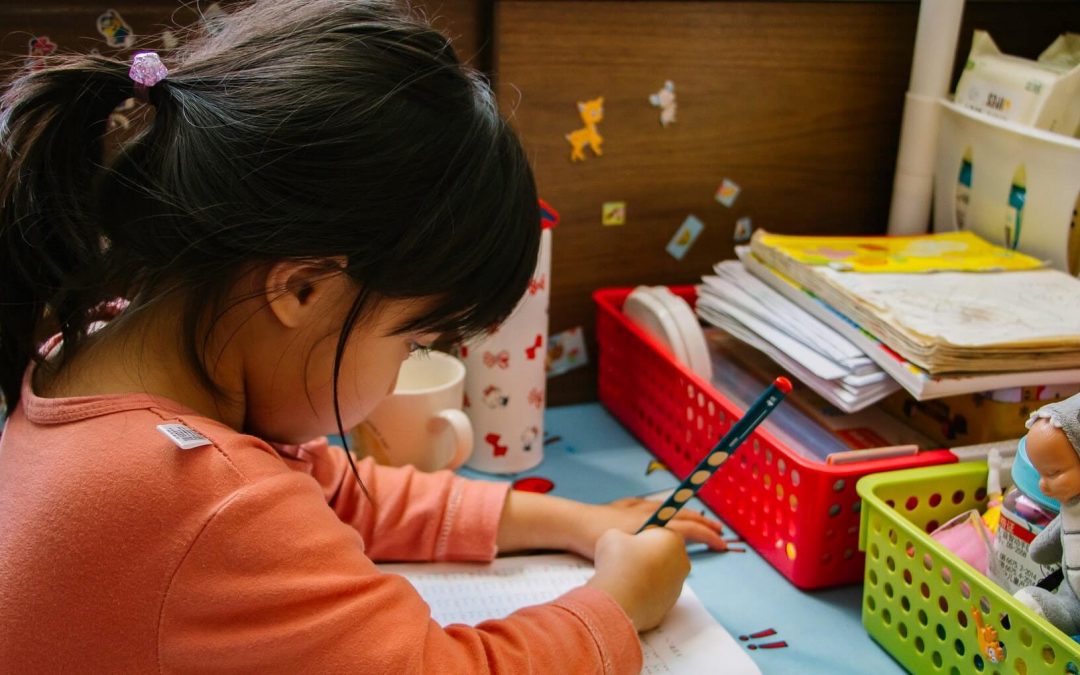Why Do Kids Need To Learn How To Problem Solve?
School can be a very challenging time: academically, emotionally and physically, and many children struggle to cope due to a lack of ability to manage their problems and take appropriate actions to resolve them. Children who don’t possess problem-solving skills may shy away from a problem when it arises or make an irrational decision due to not having thought about the consequences. This can lead to escalating these issues further, such as falling behind in their studies or struggling to form and maintain strong friendships. Developing problem-solving skills can result in a child being healthier, happier, more confident and more independent. Problems help to build character, resilience and persistence, and so it is important to introduce these skills from an early age.
Evaluate The Problem
When your child is feeling stressed or overwhelmed, everything can seem hopeless, with no end in sight. But using these steps will help them to recognise that these situations are only temporary and that they have the means to resolve them and start again.
The steps involved in problem-solving for children are:
- Identify the problem and what is causing it. Stating a problem out loud can help children who are stuck to determine what is upsetting them.
- Mind map potential solutions to solve the issue, no matter how big, small or far-fetched. This will get your child thinking of all the possible ways to face the situation head-on.
- Write down all the advantages and disadvantages of each solution and the potential consequences of these.
- Once these have been evaluated, encourage them to choose the most appropriate solution for the problem at hand.
- Encourage them to get testing their solution. If the first one doesn’t work, try number two or three!
Practice
If a problem arises, encourage your child to try and solve their problems on their own. Avoid showing your child the ‘right way’ to deal with an issue and don’t offer your help too quickly. Intervening the first chance you get may discourage your child from thinking for themselves, and may even subtly suggest that you are not confident in their ability. If you find that they come to you for help, walk them through the steps above to discover the perfect solution, because ultimately it is their issue to resolve. Practice makes perfect!
Ask Open-Ended Questions
Asking open-ended questions provides your child with the opportunity to think creatively and critically. These types of questions can’t be answered with a simple yes or no, but encourage longer answers and conversation. The questions below are perfect examples of encouraging your child to think for themselves and problem solve:
- How would we solve this problem together?
- How did you work it out?
- What do you think is going to happen next?
- What do you think would happen if…?
- What would you do differently if it happened again?
- What was difficult? What was easy?
- What did you learn from it?
Problem Solving With Creative Play
Play is one of the best ways to introduce problem-solving for children and can elicit more meaningful reactions and thinking if it is tied in with your child’s interests. Free play provides plenty of problem-solving opportunities. Puzzles, dress up and interactive games are just a few examples of this. Where does that puzzle piece fit? I want to dress up as Tinkerbell but what should I wear? Where did I put my wings? Where could Sally be hiding in this game of Hide and Seek?
Problem Solving With Stories
Reading age-appropriate stories with your child that feature characters overcoming a struggle or going on a quest to find a solution to their problem is a great way to engage them. Use these instances to draw on your own experiences or those of your child. When a problem arises, ask your child how they would deal with the issue, if they were in the character’s shoes. ‘What would you do in this position?’ This form of reading and interacting with the text actively helps to develop comprehension and propels the development of literacy skills. Why not try your hand at role-playing and the discovery of solutions to reinforce these skills?
Natural Occurrences And Their Consequences
Instances that encourage your child to think about their actions or reactions happen all the time and allowing them to face the natural consequences by themselves are when the lessons are truly learnt. Reflecting on their actions can help them to make better and more informed decisions next time, rather than jumping in head first. These are teachable moments that can help you and your child to cultivate problem-solving strategies together.
How Can Achieving Success Help You?
At Achieving Success, we believe that high-quality online tuition should be accessible to children of all ages. To ensure that our students get the most out of their tuition, we use a number of tools and techniques to keep them active and engaged during their studies. For more information on how we incorporate problem-solving for children into our bespoke curriculums at Achieving Success please get in touch with a member of our friendly team today. Alternatively, you can email us at info@achieving-success.co.uk or give us a call on 0121 769 2795.


